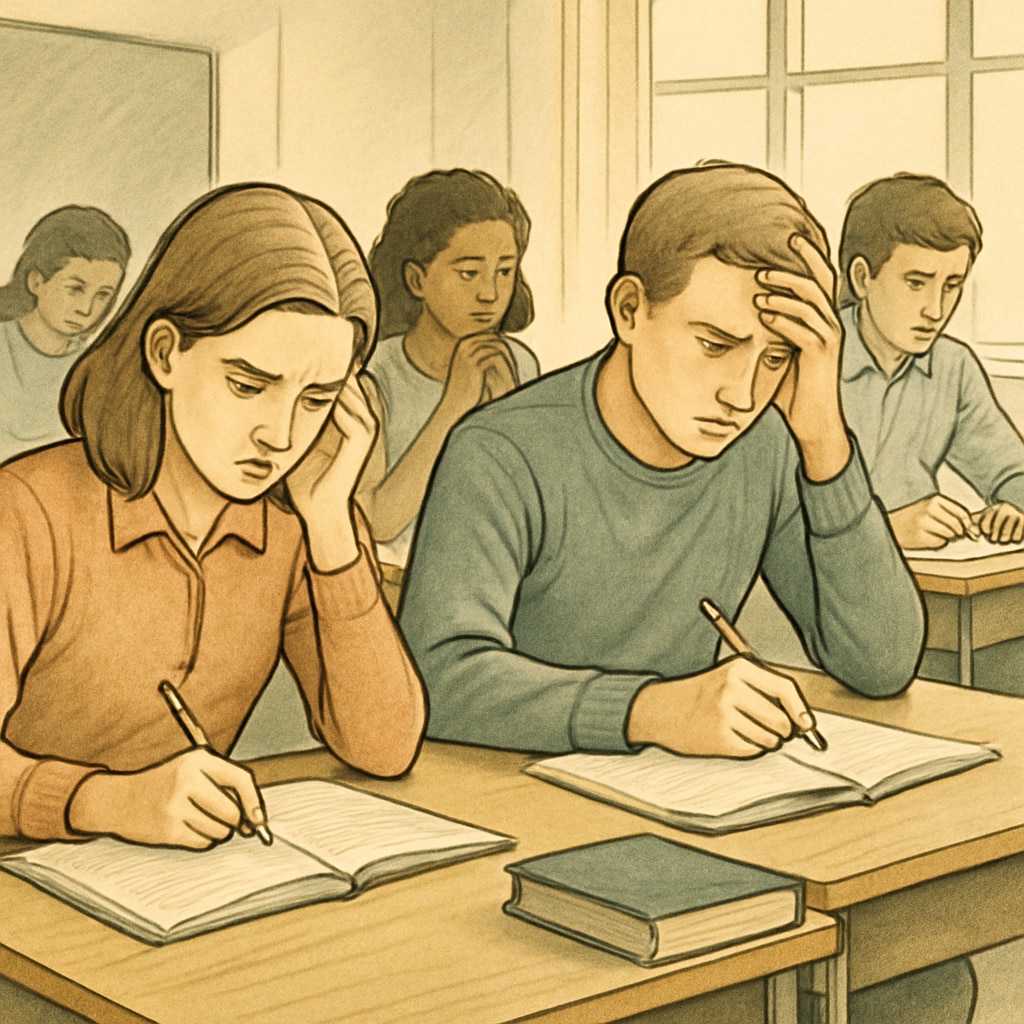GCSE results, academic anxiety, and career prospects are critical concerns for many students navigating the K12 educational system. For some, the pressure to excel in exams can lead to overwhelming stress, even when alternative educational paths are available. This article examines the impact of academic anxiety and proposes strategies to redefine success in education, emphasizing personal growth over grades.
Understanding Academic Anxiety and Its Impact on Students
Academic anxiety, particularly around GCSE exams, is a widespread issue among students. The importance placed on grades often creates a sense of fear and inadequacy, which can affect mental health, self-esteem, and overall performance. Studies suggest that exam-related stress can lead to physical symptoms such as headaches, insomnia, and even long-term impacts on emotional well-being.
For example, research from BBC Bitesize highlights the connection between high-stakes exams and student anxiety. Moreover, the pressure to meet societal expectations of academic success can overshadow the value of alternative skills and competencies.

Broadening the Definition of Success Beyond GCSE Results
Traditional education often equates success with high grades and standardized test performance. However, this narrow perspective fails to recognize the diverse strengths and aspirations of students. Success in education should encompass creativity, emotional intelligence, problem-solving abilities, and adaptability—qualities that are equally important in career prospects and life.
- Encouraging students to explore vocational training or apprenticeships as viable alternatives.
- Highlighting the importance of soft skills like teamwork and communication.
- Supporting extracurricular activities that foster creativity and leadership.
By embracing a more inclusive definition of success, parents, educators, and students can collectively reduce the stigma associated with not achieving traditional academic excellence.

Navigating Career Prospects Beyond Academic Performance
While GCSE results may play a role in shaping career paths, they are not the sole determinant of future success. Employers increasingly value practical experience, interpersonal skills, and cultural fit over purely academic credentials. Students should be encouraged to focus on building a well-rounded portfolio that reflects their unique talents and interests.
Additionally, platforms like Britannica’s career development resources offer guidance on alternative routes, such as internships and freelance opportunities, to develop professional skills outside the classroom.
For those feeling anxious about their exam performance, it’s crucial to remember that setbacks can serve as stepping stones toward resilience and personal growth. The journey to success is rarely linear, and each experience contributes to shaping a diverse and fulfilling career trajectory.
Practical Strategies to Overcome Exam-Related Stress
To support students dealing with academic anxiety, schools and families can implement strategies that promote mental wellness and emotional resilience:
- Providing counseling services to address anxiety and stress management.
- Teaching mindfulness techniques to improve focus and reduce exam pressure.
- Encouraging balanced lifestyles, including physical exercise and social activities.
- Normalizing discussions about alternative educational paths and non-linear career journeys.
By fostering a supportive environment, students can better manage anxiety and develop confidence in their abilities, regardless of exam outcomes.
Conclusion: Redefining success in education involves looking beyond GCSE results to appreciate the diverse talents and aspirations of students. Academic anxiety, while challenging, can be addressed through inclusive strategies that promote holistic development and alternative career paths. Ultimately, success is about finding value and purpose in one’s journey, not solely in exam scores.


